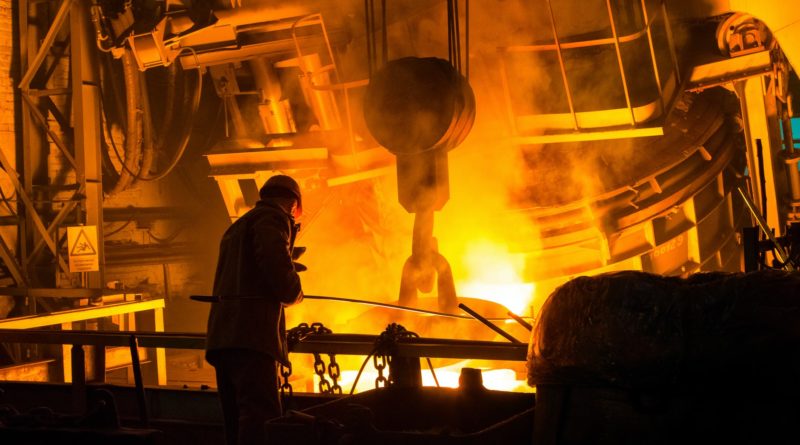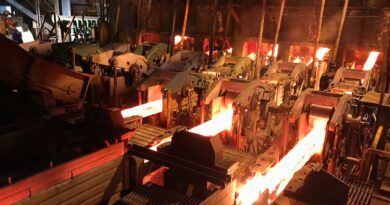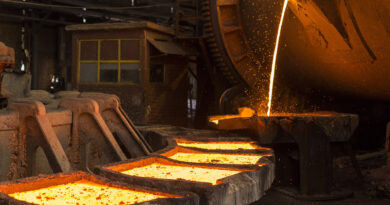Steel Safety Day and safety and health recognition 2020
Yesterday was Steel Safety Day, a day for steel companies to pause and dedicate their attention to the industry’s most important priority – the safety and health of its workers.
Normally taking place on 28 April (aligned with the International Labour Organization’s World Day for Safety and Health at Work), but this year postponed due to the COVID-19 pandemic, Steel Safety Day reinforces awareness of the most common causes of serious safety incidents in the steel industry and contributes to creating a safer working environment worldwide.
In a normal year, worldsteel members are encouraged to conduct a safety audit across their sites that focus on the year’s theme. Last year, 463,500 people from 820 sites worldwide took part in the audit.
Nearly 976,000 employees and contractors work at sites involved in the audit. The audits of course require a heavy presence on the shop floor, which in 2020 would in itself clearly pose safety risks. Recognising that everyone will have to be flexible in their approach this year, we are asking all our members to do what they feel they can to review their process safety approaches.
Andrew Purvis, Director, Safety, Environment and Technology said, ‘the recognitions from this and previous years are a very valuable source of case studies for all our members to take advantage of. All safety programmes may need adjusting for different cultures, but the recognition programme, which has been running for more than 10 years, provides a treasure trove of proven successful material. We encourage all our members to make use of this impressive library.’
The recognised companies this year are:
FOR SAFETY CULTURE AND LEADERSHIP
Emirates Steel, United Arab Emirates – AMAN Safety Culture Transformation
Over the past few years, Emirates Steel has made substantial improvements in its approach to safety, reaching a Lost Time Injury Rate of 0.53. However, safety performance hit a plateau in 2015-2017, and it became clear that a targeted effort was required to make a step change in safety culture.
The AMAN (meaning “safety/security” in Arabic) Safety Culture Transformation project introduced several crucial safety management processes aimed at moving the organisation along the Bradley curve to ultimately reach the interdependent level of safety culture development.
POSCO, South Korea – The Safety Golden Bell Challenge
The Safety Golden Bell Challenge is a survival quiz game on safety knowledge – an idea borrowed from a Korean TV quiz show – that was initiated to change the perception of safety by encouraging all employees (including contractors) to proactively communicate and participate in creating a ‘positive safety culture’ under the leadership of top management.
Tenaris, worldwide – Communication Routines
The objective of the Tenaris Communication Routines programme was to set up a systematic, prepared and structured face-to-face communication process. Through effective communication channels, starting from the plant director/manager, the aim was to reach every employee at all levels of the organisation, with a strong focus on the shift leader’s role. The purpose of the initiative was to share information to improve safety awareness, knowledge and behaviour, as well as to increase personnel engagement and instil a sense of purpose.
FOR OCCUPATIONAL SAFETY MANAGEMENT
Outokumpu, Mexico – Hands Are Not Tools
Across Outokumpu, everything starts with safety, as the safety of all employees is the first priority, every shift, every day.
Following a company-wide analysis of accident trends over a multi-year period, it became apparent that injuries to hands and fingers accounted for the highest number of accidents (61% of the total). This data prompted the safety and management teams of Outokumpu’s Mexinox mill to act.
Gerdau, North America – Red Zones
Potential Significant Injury & Fatality (PSIF) incidents involving molten metal are of particular concern in the melt shop. Over the past few years, Gerdau experienced several incidents and near misses involving molten metal.
FOR OCCUPATIONAL HEALTH MANAGEMENT
Qatar Steel, Qatar – Heat Stress Programme
During the summer months, Qatar is very hot and humid, with temperatures ranging between 33°C to above 50°C and with relative humidity sometimes reaching up to 100%.
Jobs involving operations in a hot environment where high air temperatures, radiant heat sources, high humidity, or strenuous physical activities have a high potential to induce heat-related illness and injuries to employees engaged in such operations. Considering this situation, Qatar Steel designed and implemented a Heat Stress Management Programme.
FOR PROCESS SAFETY MANAGEMENT
Tata Steel Ltd., India – Digitalisation of Process Safety Performance Indicators
Excellence in Process Safety Management (PSM) has been identified as one of the key safety strategies for achieving the Tata Steel corporate objective of ‘Committed to Zero’.
After successfully implementing PSM in 46 high hazard departments, the next challenge was to sustain the good work and pursue continuous improvement.




